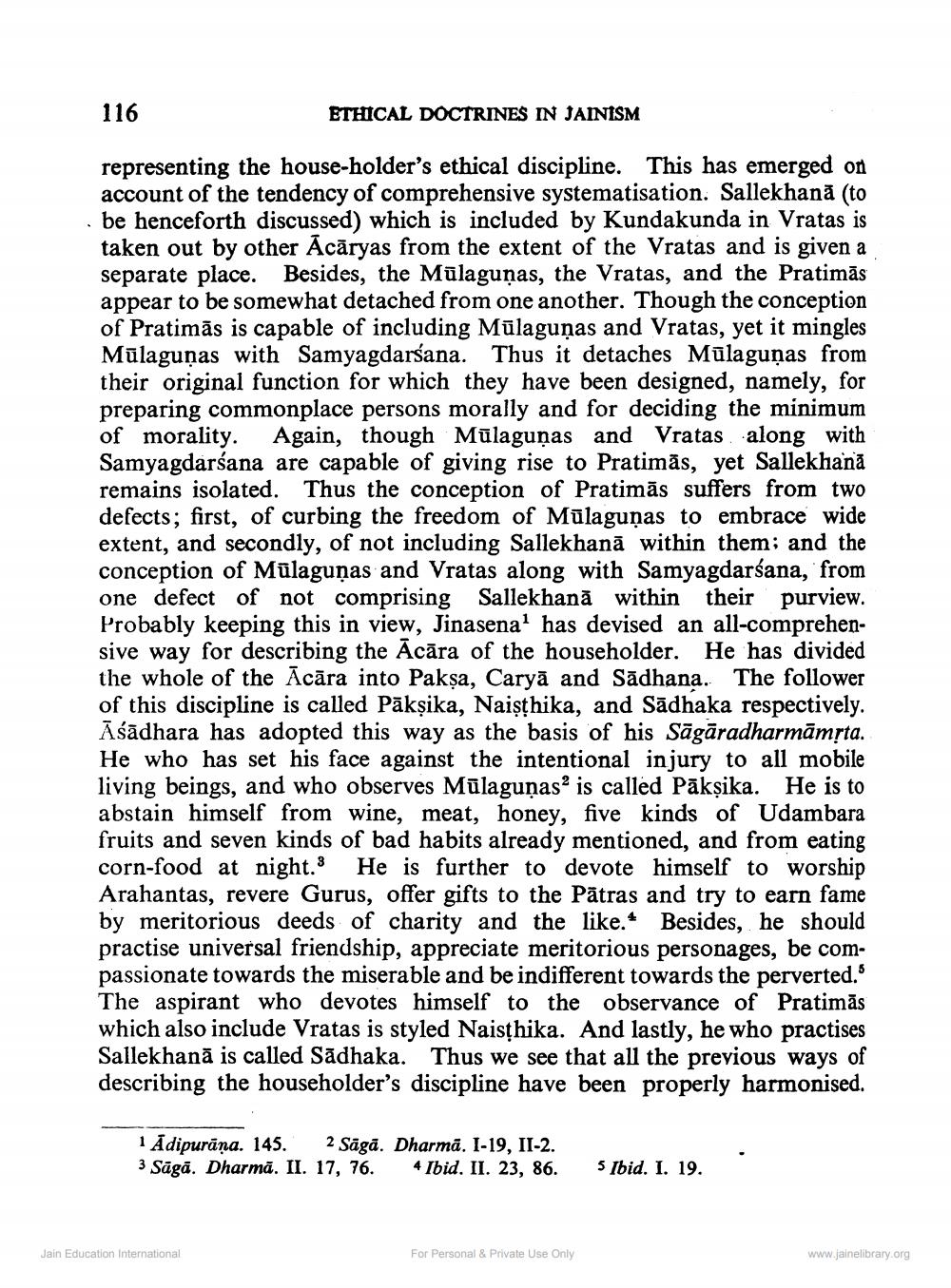________________
116
ETHICAL DOCTRINES IN JAINISM
representing the house-holder's ethical discipline. This has emerged on account of the tendency of comprehensive systematisation. Sallekhanā (to be henceforth discussed) which is included by Kundakunda in Vratas is taken out by other Ācāryas from the extent of the Vratas and is given a separate place. Besides, the Mūlaguņas, the Vratas, and the Pratimās appear to be somewhat detached from one another. Though the conception of Pratimās is capable of including Mūlaguņas and Vratas, yet it mingles Mūlaguņas with Samyagdarśana. Thus it detaches Mūlaguņas from their original function for which they have been designed, namely, for preparing commonplace persons morally and for deciding the minimum of morality. Again, though Mūlaguņas and Vratas along with Samyagdarśana are capable of giving rise to Pratimās, yet Sallekhana remains isolated. Thus the conception of Pratimās suffers from two defects; first, of curbing the freedom of Mūlagunas to embrace wide extent, and secondly, of not including Sallekhanā within them; and the conception of Mūlaguņas and Vratas along with Samyagdarśana, from one defect of not comprising Sallekhană within their purview. Probably keeping this in view, Jinasena' has devised an all-comprehensive way for describing the Ācāra of the householder. He has divided the whole of the Acāra into Pakşa, Caryā and Sādhana. The follower of this discipline is called Pākşika, Naişthika, and Sādhaka respectively. Āsādhara has adopted this way as the basis of his Sāgāradharmāmsta. He who has set his face against the intentional injury to all mobile living beings, and who observes Mūlaguņas is called Pākṣika. He is to abstain himself from wine, meat, honey, five kinds of Udambara fruits and seven kinds of bad habits already mentioned, and from eating corn-food at night. He is further to devote himself to worship Arahantas, revere Gurus, offer gifts to the Pātras and try to earn fame by meritorious deeds of charity and the like. Besides, he should practise universal friendship, appreciate meritorious personages, be compassionate towards the miserable and be indifferent towards the perverted. The aspirant who devotes himself to the observance of Pratimās which also include Vratas is styled Naisthika. And lastly, he who practises Sallekhanā is called Sãdhaka. Thus we see that all the previous ways of describing the householder's discipline have been properly harmonised.
su sigurno min. 12 ore Dhome.
1 Adipurāna. 145. 2 Sāgā. Dharmā. I-19, II-2. 3 Sāgā. Dharmā. II. 17, 76. Ibid. II. 23, 86.
S bid. I. 18.
5 Ibid. I. 19.
Jain Education International
For Personal & Private Use Only
www.jainelibrary.org




